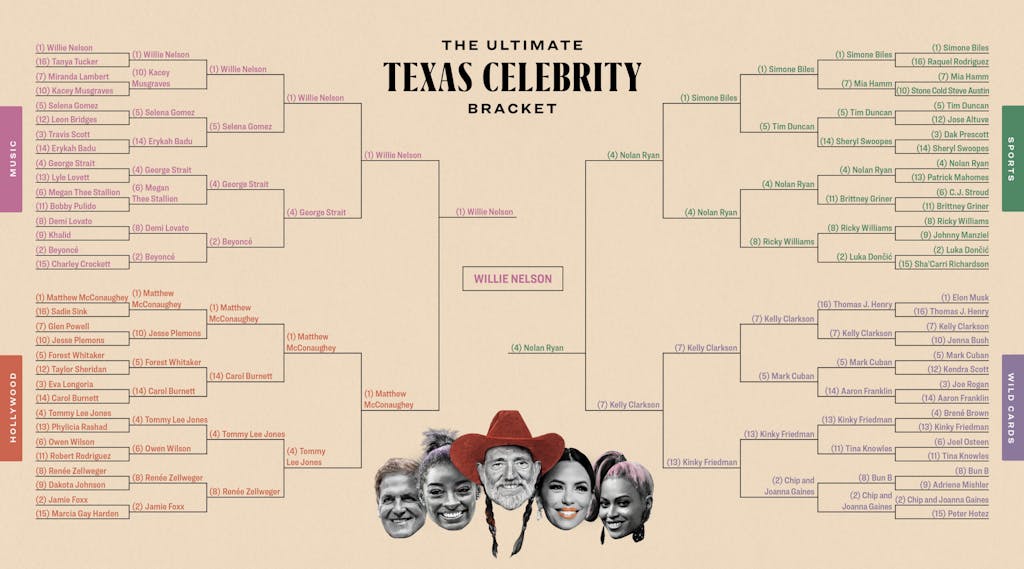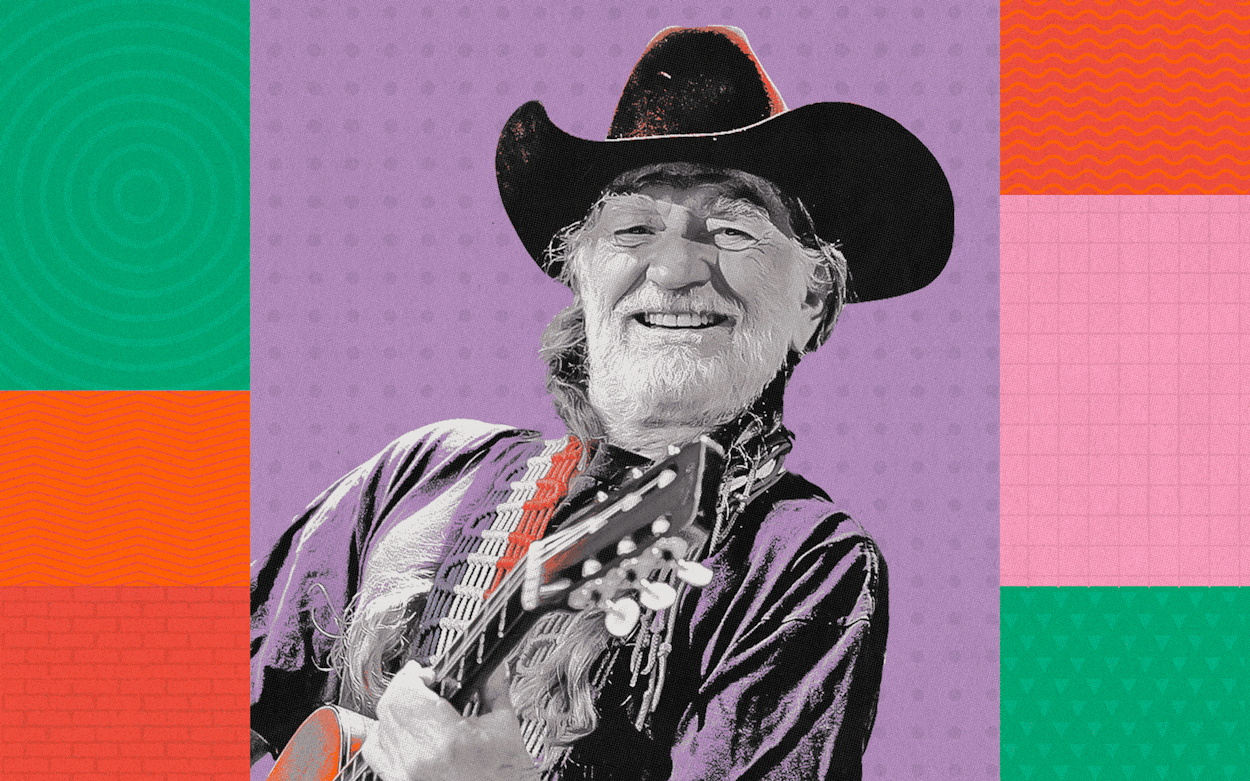Over the past week, we’ve had occasion to reflect on the many famous Texans—whether they be native, of the “got here as fast as they could” variety, or even downright newly minted—who help define the state, both to those of us who live here and to the rest of the world. There are certain qualities that you can find in most, if not all, of them: Musicians as diverse in style as Beyoncé, Miranda Lambert, Megan Thee Stallion, and Bobby Pulido have an iconoclastic, defiant streak in the music they choose to make. Figures from disparate fields, such as Tommy Lee Jones, Lyle Lovett, and Nolan Ryan are unified by their interest in ranching and horsemanship. Texan athletes including Simone Biles, Mia Hamm, and Patrick Mahomes are mentioned in conversations about the greatest of all time in their respective sports. These common threads help us understand what the Texas identity is.
At its best, that concept can be inspiring. There’s a reason that “Texan” means something anywhere in the world. Ask someone in Australia, France, or Nigeria what a Texan is like, and they’ll have a definite answer. Ask them the same question about a Delawarean and you’re unlikely to get much of a response. A Texan, at least in the most admirable sense, is friendly and generous but doesn’t suffer fools. A Texan defines the limits of what they can do and doesn’t let someone else tell them who they are; if someone tries, the Texan might get downright ornery. A Texan, when living up to the mythology the world has about us, works hard at what they’re passionate about, accomplishing feats that the world has no choice but to notice, with a sense of individual style and an appreciation for nature. That’s as true of Kinky Friedman as of Biles, as relevant for Megan Thee Stallion as for Robert Rodriguez.
When voting for the ultimate texas celebrity in our bracket, most readers seemed focused on identifying someone who feels the most Texan, and we’d wager that some version of the ideas distilled above were at the heart of those decisions. With that in mind, it seems downright obvious that the winner was going to be Willie Nelson. At ninety years old, he has, after all, been part of defining that identity for longer than anyone else.

Willie is as iconoclastic as they come, something that many of the others in the bracket have acknowledged, explicitly or implicitly. Nolan Ryan, whom Willie defeated in the final round of the bracket, told Texas Monthly in 2019 that being called the Willie Nelson of baseball was “a real honor.” Beyoncé, when making Cowboy Carter, tapped Willie for a handful of appearances that connect her decision to enter country music on her own terms with the “outlaw” tradition Willie started back in 1972 when he left Nashville to come back home to Texas. When Willie became the first member of the Austin City Limits Hall of Fame, in 2014, the induction speech was delivered by his final-four opponent, Matthew McConaughey, who called him, appropriately, “larger than life, a living legend, an icon, an inspiration to many.” Brené Brown described hearing his version of “Amazing Grace” as “completely transformative to me.” A running joke, during the week the bracket unfolded, was that everyone Willie was pitted against—a group that started with Tanya Tucker and went on to include Kacey Musgraves, Selena Gomez, George Strait, McConaughey, and Ryan—probably voted for him instead of themselves. He is, after all, Willie Nelson.
To bring it all back home, here’s Texas Monthly senior editor John Spong, host of the One by Willie podcast, explaining what he thinks are the ineffable qualities that make our readers see Willie as the greatest living Texan—whether they can trace their roots here back seven generations or they’ve never set foot in the same time zone as the Lone Star State.
If you’ll forgive me overthinking all this—and please note that, as the magazine’s unofficial Willie Nelson editor, that’s kinda my job—there are some wonderful little contradictions in Willie winning this specific distinction. On the one hand, he’s one of the truest “citizens of the world” that America has ever produced; if you’re a genuinely decent person living anywhere on the planet, you get to call Willie one of your own. But then on the other hand, he’s traveled for decades with a larger-than-life Texas flag that serves as an onstage backdrop for his shows. It’s a huge part of how he defines himself.
Similarly, as Pulitzer Prize winner and New Yorker staff writer Lawrence Wright observed on our One by Willie podcast, the most radical move Willie ever made was to start wearing his hair in long, braided pigtails. Dudes just didn’t do that in the seventies in Texas. But the state embraced him anyhow, which takes us back to that point about the flag: Every success Willie has won grew out him knowing who he was and staying true to himself, regardless of what the rest of the world might think. And there’s a real Texan quality to that.
Featured image credits: Nelson: Paul Natkin/WireImage
Bracket image credits: Biles: Tom Weller/picture alliance via Getty; Beyoncé: Evan Agostini/Invision/AP; Longoria: Christopher Polk/Variety via Getty; Nelson: CBS Photo Archive/Getty; Cuban: Brian Rothmuller/Icon Sportswire via Getty
- More About:
- Music
- Celebrity Bracket
- Willie Nelson








